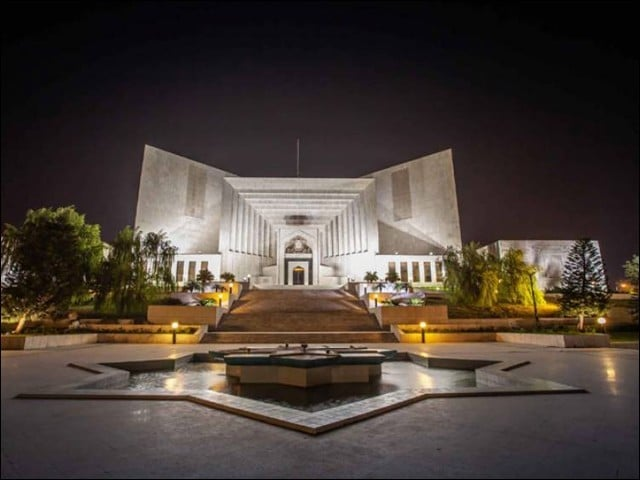
The SC has ruled that the interference of tribunals or courts in matters relating to postings or transfers was an encroachment on the executive’s domain.
"This court has already highlighted the scope of interference with the executive function of postings and transfers of government officials. It has been held that the transfer of a government official from one place or post to another to meet the exigencies of service was within the exclusive domain and competence of the competent authorities of the executive organ of the State and, ordinarily, it is not amenable to interference except in extraordinary circumstances,” read a three-page judgment authored by Justice Athar Minallah while setting aside the Balochistan Service Tribunal’s decision.
”This principle is subject to the condition that the terms and conditions of service are not adversely affected," it added.
According to the facts of the case as mentioned in SC's verdict, the controversy stems from the transfer order of the respondent, Dr Shamsullah Bazai, from the post of Loralai Medical College’s principal.
He was posted as the principal of the college through a notification issued on December 4, 2020.
The competent authority, through a notification dated October 17, 2021, directed him to report to the Specialised Healthcare and Medical Education Department but it was later withdrawn on October 26, 2021.
Dr Bazai was transferred from the post of the principal to that of a BPS-20 professor and the head of the ophthalmology department at Bolan Medical College through a notification issued on February 11, 2022.
The petitioner replaced him as the principal of Loralai Medical College.
The respondent filed a departmental appeal and it was rejected by the competent authority through an order issued on February 17, 2022.
He then filed an appeal before a tribunal, which was allowed through a judgment issued on April 27, 2022.
A three-judge SC bench, led by Chief Justice of Pakistan Umar Ata Bandial, heard the matter.
The judgment noted that an official had no vested right to claim to be posted or transferred to any particular place of their choice. It continued that an official neither had a vested right to continue to hold a specific post at a particular place.
"The transfer and posting of a government servant is limited to the given tenure, if any, at the pleasure of the competent authority,” the verdict stated.
The SC bench posed a question as to whether or not the posting and transfer made by the competent authority in the public interest was open to judicial review by a tribunal or court.
It added that utmost caution and restraint ought to be exercised in interfering with or encroaching on the exclusive domain of the executive authorities.
"The decisions in connection with posting and transfer of government servants must not be subjected to judicial scrutiny unless a law has been clearly violated or mala fide and malice is established without the need for making an inquiry,” the judgment read.
The SC ruled that the interference of the tribunal or courts in matters relating to postings or transfers was an encroachment on the executive domain and in breach of the seminal principle of separation of powers embedded in the Constitution.
“The tribunal was not justified in interfering with the posting or transfer orders of the respondent nor was it in consonance with the settled principles relating thereto,” it added.
“The judgment [of the tribunal] is, therefore, set aside and with [the] leave of this court, the petition is converted into an appeal and allowed,” read the SC verdict.

1732071267-0/lana-(2)1732071267-0-405x300.webp)
1727242355-0/Diddy-(1)1727242355-0-165x106.webp)

1732063440-0/elon-(3)1732063440-0-165x106.webp)




1731749026-0/Copy-of-Untitled-(3)1731749026-0-270x192.webp)








COMMENTS
Comments are moderated and generally will be posted if they are on-topic and not abusive.
For more information, please see our Comments FAQ